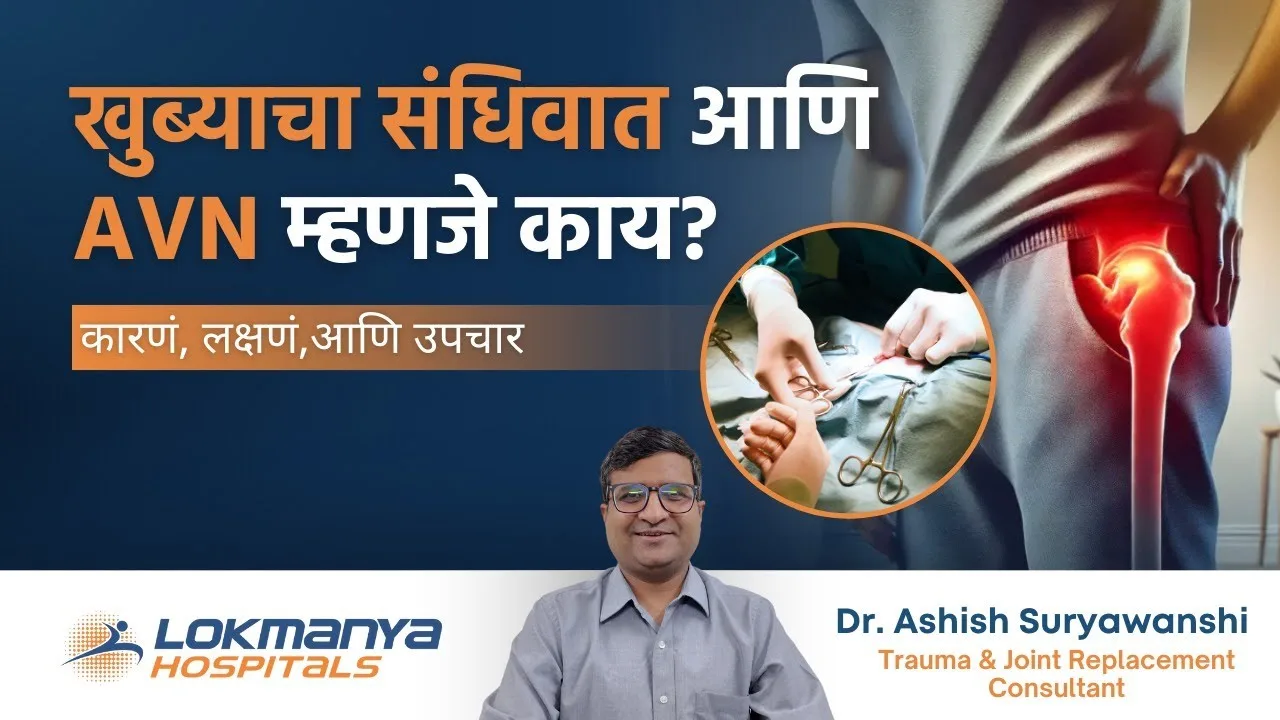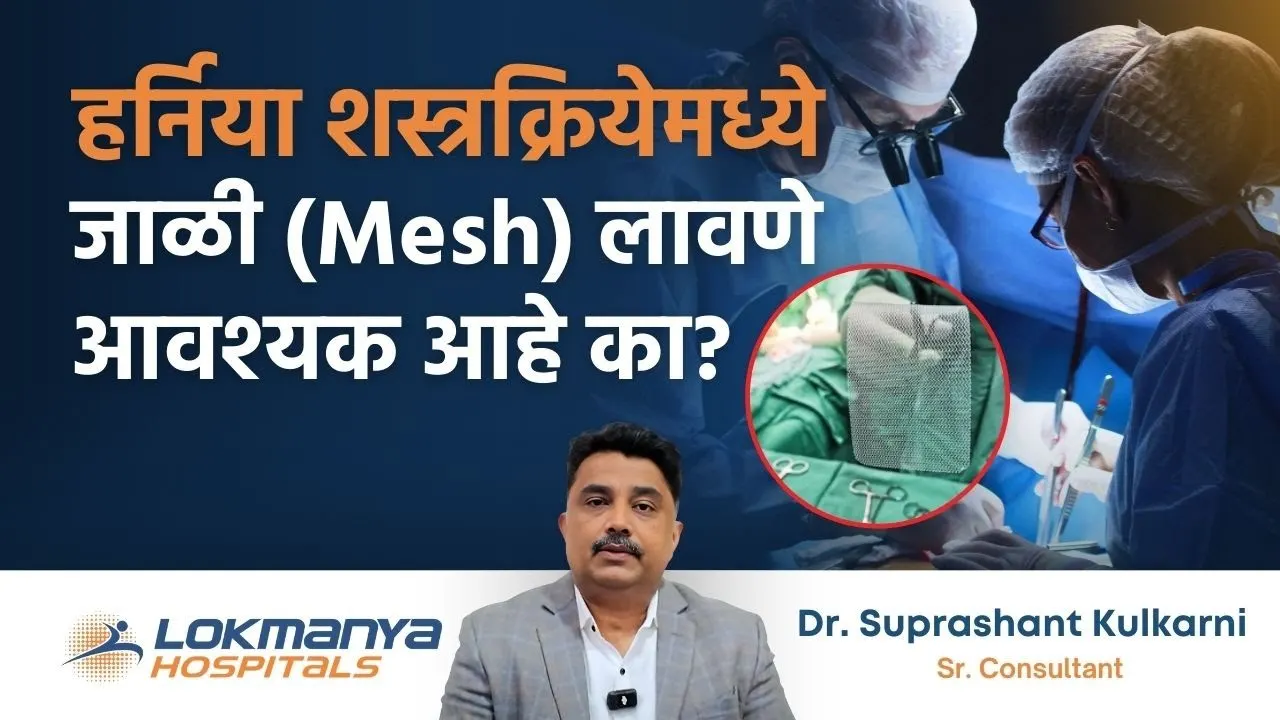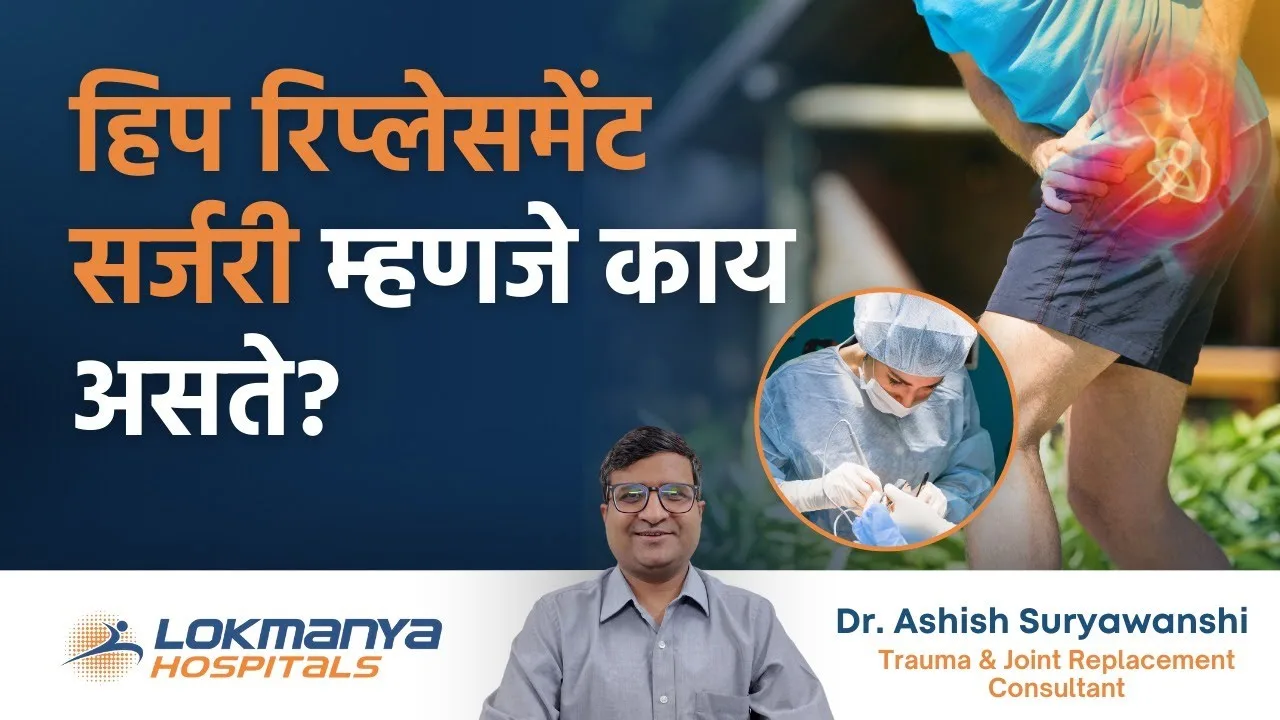How COVID-19 Has Impacted Hip Joint Health: Insights from Dr. Ashish Suryawanshi
Category: Orthopedics
Dr. Ashish Suryawanshi, Orthopaedic Trauma and Joint Replacement Surgeon at Lokmanya Group of Hospitals, shares important insights into how the COVID-19 virus has influenced a rise in joint replacement surgeries—particularly those involving the hip joint.
Post-Covid Changes In Hip Joint Health
Since the emergence of COVID-19, a noticeable increase in hip-related complications has been observed. According to Dr. Suryawanshi, one of the primary causes behind this is the virus itself, which can severely affect the hip joint—commonly referred to as the khubya cha sandha in Marathi.
What Happens When The Hip Joint Is Affected?
When the hip joint gets damaged, patients often experience intense pain that disrupts their daily activities. Simple movements such as walking become difficult or even impossible. This severely affects the quality of life and often leads to chronic pain.
The Core Problem: Avascular Necrosis (Avn)
The key medical issue arising post-COVID is Avascular Necrosis (AVN) of the femoral head—also known as the "ball" in the ball-and-socket hip joint. AVN leads to a cut-off in blood supply to the femoral head. Without sufficient blood, the bone tissue begins to die, which gradually causes the protective joint covering to deteriorate. As a result, bones start rubbing against each other, leading to arthritis.
Why Is Avn On The Rise?
Dr. Suryawanshi notes two major contributors:
- Use of steroids during COVID treatment
- Direct vascular effects caused by the virus, such as clot formation
Both of these lead to disrupted blood supply in the hip joint, triggering AVN.
Symptoms And Diagnosis Of Avn
One of the early signs is pain in the front portion of the hip, often felt in the thigh area. Patients may begin to limp or find walking increasingly difficult. Initially, the pain is manageable and temporary. Many patients take painkillers and delay medical consultation, allowing the disease to progress unnoticed.
The Stages Of Avn
AVN progresses in four stages:
- Stage 1: No visible symptoms
- Stage 2: Mild, intermittent pain begins
- Stage 3 & 4: Severe bone damage and joint collapse
By the time most patients reach a doctor, they are already in Stage 3 or 4, which are irreversible without surgery.
Treatment Options
If detected in early stages (Stage 1 or 2), AVN can be managed through medications and non-surgical treatment plans. However, in advanced stages, surgery becomes necessary. Fortunately, modern techniques have made hip replacement surgeries more successful than ever.
Importance Of Early Detection
Dr. Suryawanshi emphasizes the need to take hip pain seriously. Consulting an orthopedic surgeon or a hip specialist at the earliest sign of discomfort can help detect the disease early and possibly avoid surgery.
FAQ’s
1. What is AVN or Avascular Necrosis?
AVN is a condition where blood supply to the bone (femoral head) is disrupted, leading to bone tissue death and eventual joint damage.
2. How is AVN linked to COVID-19?
Steroid use and vascular complications due to COVID-19 are major contributors to the rise in AVN cases.
3. What are the early symptoms of AVN?
Mild pain in the front of the hip or thigh, difficulty walking, and limping are common early signs.
4. Can AVN be cured without surgery?
If diagnosed in Stage 1 or 2, AVN can often be managed with medications and non-surgical treatments.
5. What happens if AVN is left untreated?
It can progress to irreversible stages, causing bone collapse and requiring hip replacement surgery.
6. Who should I consult if I have persistent hip pain?
An orthopedic surgeon or a hip specialist should be consulted immediately.
7. Are hip replacement surgeries safe?
Yes, with modern medical technology, these surgeries have high success rates and faster recovery.








